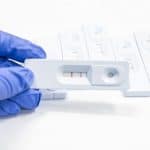Methamphetamine, also known as meth, crystal meth, or ice, is a powerful stimulant that comes with a variety of dangerous side effects.
While there are different ways of ingesting meth, like snorting or smoking, injecting it creates a more intense high, and, with repeated use, can cause very serious health problems.
Effects Of Shooting Meth
Shooting meth produces a more intense and faster high compared to other ways of using the drug. Injecting meth causes it to go right to the central nervous system. This releases a large amount of dopamine and leads to an intense euphoric feeling.
The short-term high can come as quickly as 30 seconds after injection. But this high is not the only effect of the drug. Methamphetamine use can come with a variety of unpleasant physical and mental side effects.
Physical Effects Of Methamphetamines
The physical side effects of injecting methamphetamine into your body can include:
- skin sores at the injection site
- abscesses
- tooth decay (“meth mouth”)
- weight loss
- high blood pressure
- rapid heartbeat
- stroke
- heart attack
- increased energy
- loss of appetite
- increased respiration
- increased body temperature
- uncontrollable jaw clenching
- seizures
- inability to sleep
- nerve damage
- kidney and liver damage
Mental Health Effects Of Methamphetamines
Injecting meth for a long period of time can also affect your mental health and may cause:
- memory loss
- severe brain damage
- hallucinations
- personality and mood changes
- anxiety
- paranoia
- aggressive or violent behavior
- loss of ability to feel pleasure
- suicidal thoughts
- depression
Dangers Of Shooting Meth
Injecting meth comes with many unique dangers that other methods of drug use don’t include. These dangers can include:
High Risk Of HIV & Hepatitis C
People who inject drugs like meth may share needles and that can increase the risk of contracting HIV and hepatitis C.
You may not know where the needle has been or who has used it and what viral infections they have. Even repeatedly using a needle can cause infections and collapse of veins.
Overdose
Injecting meth also comes with an increased risk of overdose. It’s very hard to know the dose when you’re injecting or suffering from drug addiction. This makes it very easy to overdose unintentionally.
Additionally, since the drug goes directly into the bloodstream and then brain, it can cause intense fatal effects very quickly. Those effects include seizures and strokes which can lead to permanent damage to the brain, heart, and kidney.
If you suspect someone has overdosed, it’s important to seek emergency help immediately. Healthcare professionals will know how to treat the symptoms and reduce the risk of death.
Heart Issues
Using needles that have not properly been sterilized can also lead to a bacterial infection like endocarditis.
Endocarditis is the inflammation in the inner lining of the heart chambers and the valves. It can be fatal if left untreated. When using any drug via needle, your chances of this infection increase.
Vein Damage
Because of the stimulant effects of meth, your veins can shrink and contract. This can make it harder to find a vein or hit a vein, leading to repeated injections. If you keep poking your veins with needles, they can become damaged. When poked enough, the veins can even collapse.
The chemicals involved in making meth can also burn the blood vessels and lead to scarring.
Signs Of Shooting Meth
If you’re looking for signs of injection in a loved one, be on the lookout for:
- decreased appetite
- unexplained weight loss
- unexplained aggression or violence
- paranoia and hallucinations
- restlessness and body tremors
- skin flushing
- itching
- presence of syringes, spoons, and lighters
- scarring
Treatment For Methamphetamine Abuse
Help is available for those living with meth addiction. Some forms of addiction treatment that are available include:
- inpatient treatment centers: patients stay at a treatment facility and receive therapy, medical care, addiction education, and other behavioral health services
- outpatient treatment: patients stay at home in between therapy and support group sessions
- support groups: groups like Narcotics Anonymous or Crystal Meth Anonymous address substance use disorders by gathering and supporting those with similar issues
- professional interventions: family interventions help the patient understand how their meth use affects the ones they love, encouraging them to attend treatment
If you or a loved one struggles with drug abuse or another form of substance abuse, please call our helpline to learn about our treatment options.
Sources
- National Institute on Drug Abuse — How is methamphetamine misused?
- National Library of Medicine: MedlinePlus — Methamphetamine
- National Library of Medicine: PubMed — Characteristics and harms associated with injecting versus smoking methamphetamine among methamphetamine treatment entrants
- Substance Abuse and Mental Health Services Administration (SAMHSA) — Know the Risks of Meth
Written by
Northeast Addition Editorial Team
©2024 Northeast Addition Center | All Rights Reserved
This page does not provide medical advice.







